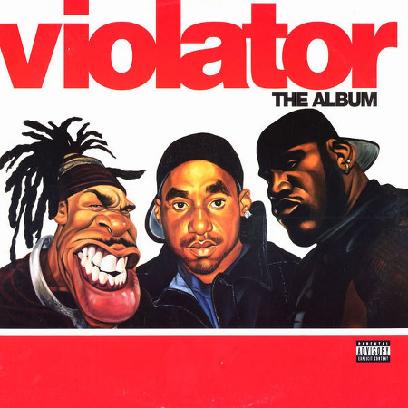This post is really about three things: The year 1999 in rap music, Cru and their song Ooh Wee but more than anything, I wanted to share my thoughts on a very important man in the realm of rap music: the late, great Chris Lighty, who passed away under dubious circumstances a few months back.
But first, a personal story: I was always something of a late bloomer. While I was made aware of music and the popular landscape, as a child, I just wasn’t all that into it. I preferred horror flicks, late-night talk shows and video games. ’99 was when everything changed. On a school trip to NYC, I copped Nas‘ “I Am” CD from the long-defunct Virgin Megastore in Times Square and remember the brief state of hypnosis I wound up in while playing it from cover to cover on the Greyhound back to Muntree. ’99 to me was the year of Terror Squad (the original line-up, not the ones that leaned back), Busta Rhymes‘ Extinction Level Event, Murda Muzik and ATCQ‘s “Love Movement” LP, not to mention Cypress Hill IV, The Roots‘ phenomenal “Things Fall Apart” and the Cash Money movement, among so many other highlights. Half of the aforementioned shortlist was brought together under the same umbrella: Chris Lighty’s Violator Management who, under the auspices of Def Jam Recordings, released a compilation showcasing their monstrous roster on August 10, 1999.
A couple of notes on the Violator album: It served as a platform to launch Q-Tip‘s budding solo career, as the lead single was also Kamaal’s first hit single as a soloist, “Vivrant Thing”. The album also continued a trend made popular that year with Jay-Z and UGK‘s “Big Pimpin'”, pairing East Coast acts with their Southern counterparts. Eightball appears twice on the compilation, notably on the outstanding “Do What Playas Do” featuring Ma$e, and Cormega was featured on a joint along with the Hot Boys, which then included a 16 year-old Lil Wayne. (!)
I chose “Ooh Wee” over the other joints because Cru is for the most part a footnote in New York rap’s history. The Bronx natives have one full-length release, which dropped in 1995 on Def Jam to very little avail. Only one member of the trio, Yogi, went on to attain some measure of success in the music business, as a producer (he crafted the beat for “Pass The Glock”, the TS joint I linked earlier in this article). The song is so goddamn NY that it hurts.
Finally, about Chris Lighty: The man has an indisputable legacy in rap music, with countless stories that he had a direct hand in shaping. In My Infamous Life, Prodigy recalls Chris when he was moonlighting as the doorman for the notorious Tunnel nightclub, where Lighty would help smuggle backpacks full of contraband for Mobb Deep and their associates. In The Big Payback, author Dan Charnas paints the portrait of a man torn between his lower impulses and highest self. From carrying crates for DJ Red Alert to acting as the Jungle Brothers‘ road manager and watching their million-dollar deal with Warner Bros. amount to chump change, “Baby Chris” had to choose between his “Violators”, the five-man wrecking crew with mythical status in the streets and the business he would one day make a killing in. He immortalized his team by naming his management firm after them, got under the wing of a young, still-unproven executive named Lyor Cohen in order to learn the ropes, and almost singlehandedly steered a floundering Def Jam back into the black by masterminding the signing of Warren G at a time when all people wanted to hear was that Cali shit. While the cause of death was an apparent self-inflicted gunshot wound to the head, the amount of bravery that man displayed over his storied career should never be ignored. Pay homage.



No Comment